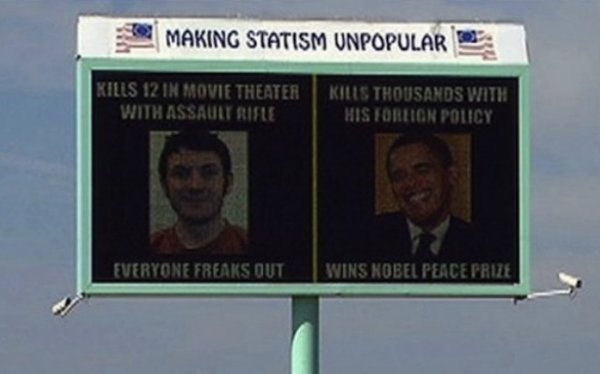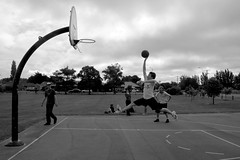A taxi passes alongside one of the official Olympic Lanes on a street in central London Monday, July 23, 2012, ahead of the 2012 Summer Olympics. (AP Photo/Ben Curtis)
A taxi passes alongside one of the official Olympic Lanes on a street in central London Monday, July 23, 2012, ahead of the 2012 Summer Olympics. (AP Photo/Ben Curtis)
A cyclist takes advantage of an empty Olympic Lane on the embankment in central London, Monday, July 23, 2012. The Olympic road lanes will come into effect on Wednesday, July 25, two days before the Opening ceremony of the 2012 Summer Olympics. Only accredited vehicles will be allowed to use them. London's traditional taxis will not be allowed in them. (AP Photo/Kirsty Wigglesworth)
Taxis drive slowly in protest across Tower Bridge in London, Monday, July 23, 2012. The traditional London taxis were holding a protest against not being allowed to drive in the Olympic Lanes once they come into force on Wednesday, July 25. (AP Photo/Kirsty Wigglesworth)
Taxis drive slowly in protest across Tower Bridge in London, Monday, July 23, 2012. The traditional London taxis were holding a protest against not being allowed to drive in the Olympic Lanes once they come into force on Wednesday, July 25. (AP Photo/Kirsty Wigglesworth)
Traffic drives along Olympic Lanes on Embankment in central London, Monday, July 23, 2012. The Olympic road lanes will come into effect on Wednesday, July 25, two days before the Opening Ceremony of the 2012 Summer Olympics. Only accredited vehicles will be allowed to use them. London's traditional Black Cabs will not be allowed in them. (AP Photo/Kirsty Wigglesworth)
LONDON (AP) ? Sabir Karim, a lifelong Londoner, was alarmed to find this week that a familiar city road had suddenly turned into an impossible challenge.
Officials had redrawn its lanes, leaving him only two options: The bus lane on the left, or the new Olympic "Games Lane," restricted for the sole use of officials and athletes, on the right. The restaurant owner didn't know what to do, but he knew that fines awaited him if he drove in either lane.
"I was literally trapped," he said. "I panicked. It was a scary and horrendous experience."
Bafflement and long waits reigned on London's roads this week as drivers struggled to comprehend the new lane changes, diversions, banned turns and parking restrictions for the Olympics, which officially open on Friday.
As host city, London is as cosmopolitan as they come, but transport is its weak spot: Traffic often clogs up its narrow, historic roads, bus schedules can change at a moment's notice, and the subway (the famous Underground) suffers from daily delays and century-old infrastructure.
The road changes, which came into full force Wednesday morning, are causing additional pain. There were traffic backups in some parts of central London early Wednesday as commuters coped with the new restrictions, and there were signs that many motorists had switched to public transport to avoid the hassle.
"Drivers do have somewhere to go, but it's been a bit confusing," said Paul Watters, head of road policy at the British Automobile Association. "We know it's going to be tricky and difficult, and it's bound to be full of teething problems. We're almost there now so hopefully it will be better."
Even if it all goes smoothly ? a big if ? the 30 miles (48 kilometers) of Olympics-only road lanes are likely to remain deeply unpopular among Britons.
Critics argue that these lanes ? open only to Olympic athletes, officials, journalists, emergency services and games marketing partners ? are elitist and make life difficult for everyone else. Driving on the lanes, widely dubbed "Zil lanes" after the Russian limos granted exclusive use of special lanes on Soviet-era highways, can cost you a fine of up to 130 pounds ($202).
Britain relies on traffic cameras to spot infractions, so many people won't know they've been ticketed till the bad news arrives in the mail.
The International Olympic Committee had specifically demanded the lanes be created after learning lessons from previous games ? one of the worst being Atlanta in 1996, now remembered as the one where bus drivers got lost and some athletes arrived moments before their events.
In London, some of the loudest opposition to the Olympic VIP lanes has come from the city's cabbies, who have staged two demonstrations in the past two weeks that brought central London traffic to a standstill. Like the rest of the public, they're banned from the Olympic lanes, which they say jeopardizes their business by creating much longer ? and costlier ? cab rides for customers.
"We're not going to be able to drop passengers where they want to go," said Lee Osborne of the United Cabbies Group, which protested with about 50 cabs at Tower Bridge on Tuesday. "Traffic in London is pretty bad as it is, and now passengers are going to suffer with the meter just ticking away."
Even on a normal day, driving in London is rarely a smooth experience. For a city of its size, it has surprisingly few highways or wide thoroughfares, which means that most roads have multiple traffic lights and pedestrian crossings. Olympics organizers have repeatedly urged people to avoid driving their cars, to walk and bike ride around, and for spectators to go to events using public transport.
That's easier said than done. London's Tube network is the most popular way to get across town, but it groans with age ? its first line, the Metropolitan line, opened in 1863. Today, that line still runs alongside more than a dozen others in a half-modernized system that handles roughly 12 million trips a day.
Officials are expecting up to 15 million subway trips a day during the Olympics.
The British government has injected 6.5 billion pounds ($10 billion) to upgrade the network ahead of the Olympics, but it's still riddled with daily problems. On Tuesday, extensive delays hit the key Javelin high-speed train from central London to the Olympic Park, and on Monday, multiple key lines leading to the park broke down during the morning rush hour.
"It can't even cope in normal times, all it takes is one problem and the whole system gets paralyzed," said Tony Shelton, an accountant who was riding the Northern line. His journey was only slightly delayed but he said: "I'll probably avoid coming into town."
Not everyone is so downbeat. Many others are proudly standing by their Tube and their city.
"It was absolutely fine today. I'm sure it will be all right," said Amelia Alvares, a marketing manager. "It's not perfect, but it will work."
__
Sylvia Hui can be reached at http://twitter.com/sylviahui
Associated PressSource: http://hosted2.ap.org/APDEFAULT/347875155d53465d95cec892aeb06419/Article_2012-07-25-London%20Olympics-Transport/id-b2431930b6db48e9a0020c7a09faf6eb
joy division dodd frank norco rand paul detained nbc news asexual jim carrey





 According to their official Twitter feed, they have as of today, officially reached their $50,000 funding goal, so it is looking like it is full speed ahead at this point! The Twitter feed is also confirming that the original overlays for all of the games will be incorporated into the final product! (Of course, if you want to play without them for some weird reason, you can turn them off.) Currently, there is no scheduled release date for the app, but they have available a full website with information (where you can download the official press kit), as well as a Twitter feed as I said earlier, where you can get the most up to date information. If you have always wanted to dabble with the Vectrex, but didn?t have the money to get one, (Vectrex systems have been known for being rather pricey when bought used these days), this may be a nice alternative!
According to their official Twitter feed, they have as of today, officially reached their $50,000 funding goal, so it is looking like it is full speed ahead at this point! The Twitter feed is also confirming that the original overlays for all of the games will be incorporated into the final product! (Of course, if you want to play without them for some weird reason, you can turn them off.) Currently, there is no scheduled release date for the app, but they have available a full website with information (where you can download the official press kit), as well as a Twitter feed as I said earlier, where you can get the most up to date information. If you have always wanted to dabble with the Vectrex, but didn?t have the money to get one, (Vectrex systems have been known for being rather pricey when bought used these days), this may be a nice alternative!
 As we walked through the16th century old city to our apartment, we didn?t feel the heat but only the breeze of the ocean on our faces. We were so relieved. After we unpacked our luggage, I focused on the kitten. He was so fragile dirty and his eyes were only barely open. Austin and I gave him a bath and cleaned his eyes. Said warned us of diseases and said the wild cats were considered unclean. It didn?t stop us from caring for him and to our surprise, the little fella even changed colors after his bath, he had beautiful white fur and a few black spots. We decided to name him Moses. Moses didn?t know how to eat food on his own or maybe he was too weak. I went to a local market and bought laughing cow cheese, a baby bottle and milk. I put some cheese on the tip of my finger, but he was too weak to eat. I then smeared a little on his mouth and once he got a taste of it he was soon licking it up. Later, he began drinking from the bottle of milk and within days he was running around the apartment playing with Austin.
As we walked through the16th century old city to our apartment, we didn?t feel the heat but only the breeze of the ocean on our faces. We were so relieved. After we unpacked our luggage, I focused on the kitten. He was so fragile dirty and his eyes were only barely open. Austin and I gave him a bath and cleaned his eyes. Said warned us of diseases and said the wild cats were considered unclean. It didn?t stop us from caring for him and to our surprise, the little fella even changed colors after his bath, he had beautiful white fur and a few black spots. We decided to name him Moses. Moses didn?t know how to eat food on his own or maybe he was too weak. I went to a local market and bought laughing cow cheese, a baby bottle and milk. I put some cheese on the tip of my finger, but he was too weak to eat. I then smeared a little on his mouth and once he got a taste of it he was soon licking it up. Later, he began drinking from the bottle of milk and within days he was running around the apartment playing with Austin. According to a press release from the TMLC, the motion was filed on Wednesday afternoon with Federal District Judge Robert Cleland of the Eastern District of Michigan on behalf of Legatus, a Catholic business organization founded in 1987 by Tom Monaghan, former owner of Domino?s Pizza, Legatus member Daniel Weingartz of Weingartz Supply Co.
According to a press release from the TMLC, the motion was filed on Wednesday afternoon with Federal District Judge Robert Cleland of the Eastern District of Michigan on behalf of Legatus, a Catholic business organization founded in 1987 by Tom Monaghan, former owner of Domino?s Pizza, Legatus member Daniel Weingartz of Weingartz Supply Co.
